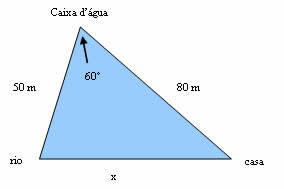Brazilian writer and philosopher born in São Benedito, State of Ceará, one of the greatest names in Brazilian philosophical thought and author of one of the greatest works philosophical issues produced in our country, where he identified the planes of knowledge and being, dogmatically returning to the traditional metaphysics, of character spiritualist.
He did his first studies in Sobral, but with the drought he had to move with his family to Fortaleza, where he completed secondary school at Liceu Cearense and graduated in law at the Recife Faculty of Law, where he was a student of Tobias Barreto and obtained a bachelor's degree (1884). He served as prosecutor and twice as secretary in the government of the state of Ceará and later transferred to the State of Pará, where he taught at the Faculty of Law of Belém do Pará (1902-1909) and worked as a lawyer and district Attorney.
Known as a prestigious author, he moved to Rio de Janeiro (1909) and won the competition for the chair of logic at Colégio Pedro II, a position he held for the rest of his life. Very religious, in his first works he criticized the philosophy of the time, in his dissolving view, proposing to fight materialism, theory of evolution and relativism, preaching a God as a principle that explains nature and serves as the basis for the mechanism of moral order in society.
In the following works he evolved to a more pronounced spiritualism, abandoning the initial naturalism. He died in Rio de Janeiro, leaving Finalidade do Mundo as his main publications (three volumes: 1895 / 1899/1905), Truth as a Rule of Actions (1905), The Physical Basis of the Spirit (1912) and The Inner World (1914). In his honor, the city of Quixará, in the interior of Ceará, was renamed Farias Brito.
Source: http://www.dec.ufcg.edu.br/biografias/
Order R - Biography - Brazil School
Source: Brazil School - https://brasilescola.uol.com.br/biografia/raimundo-farias.htm


